I am thankful that we are here today, for the grand launching of our party, the National People’s Party – NPP. It has been a year since our party was registered but the launching was delayed because the world has been overwhelmed by the Coronavirus pandemic.
Globally, experts are trying to find more lasting solutions but in the meantime, we will have to live with managing and containing the virus in-order to prevent its further spread. Thus it has become mandatory to wear facial mask, wash our hands with soap and water or use hand sanitizer regularly, while we avoid hand shaking. These are some preventive measured important for our safety and to contain the spread of COVID -19.
To proceed, let me begin this historic event in the annals of the political evolution of our country by sharing some of the questions I reflected on before embarking on my political journey. In fact, I believe that all genuine citizens should ask themselves such questions as: “What defines a person’s credibility? How is a citizen’s mission determined, and who should define such a noble mission? How do we earn the reputation of a patriot in one’s land?
How do we design the footprints we leave behind after bowing out from public life? When is it mandatory to serve humanity, and when is it time to quit?
I have learnt that in answering these questions, we must be guided by history and the existing circumstances of our era; by our insight into life and our vision for the future; by a keen sense of purpose and a clear sense of direction; by passion and commitment, and by the degree of our sincerity and how high we can rise above our ego.
I am convinced that in urging me to form a political party to contest the 2021 Presidential Election, the people of this nation must have assessed me and my performance.
Furthermore, I am convinced that your confidence in me, as a nation, is based on sound reasoning and wise judgment, hence your call for me to lead this historic voyage.
It is with much humility and profound gratitude, therefore, that I register my appreciation of the faith and confidence that the Gambian population have in me and their encouragement and support for me to champion the cause of this nation under the banner of a new Party. This is what has given birth to the National People’s Party (NPP), which we are here to officially launch today.
I have accepted to form this party, together with all of you to provide a platform for us to collectively fight the social divisions, political cracks and institutional failures that have persistently undermined the peace, stability, progress and development of our dear motherland.
Be assured that this is a party devoted to creating, expanding and sustaining space for popular participation in development as politically mature, democratic, patriotic and economically independent citizens.
To define these, my view is that political maturity is reflected by how well we behave, act and respond to our civic responsibilities, and not how vulgar, how ambitious and how violent we are or can be.
On the other hand, democratic maturity is demonstrated through the exercise of our rights without infringing upon the rights and freedoms of others. By the same token, patriotic maturity is shown by how much we selflessly contribute to development, and how we refrain from undermining the progress and development of the nation and the people. It is the combination of all these that defines the type of citizens we are.
This new Party, the NPP, represents the present and the future, and it is here for all Gambian citizens within the frame of a new political consciousness and a new direction. It is the party for all categories of people, based on the concept of true democratic and patriotic Gambian citizenship.
Ladies and Gentlemen,
The NPP is the outcome of the commitment to sustain the change that was brought about in 2016 and the public outcry for freedom, justice, peace, progress and dignity, as well as for fundamental rights and liberties.
It is anchored in a well-defined approach to harness our human and material resources in order to address our challenges, manage our circumstances better and redirect the course of our destiny for the common good.
To guide the Party, a comprehensive manifesto has been developed. This manifesto, which is now available, is the result of an in-depth search for options and possibilities that meaningful change can bring about in the country.
In it, we offer alternatives to rescue the Gambian citizens whose talent and potential have either been wasted, untapped or ruthlessly exploited for decades.
We offer a governance construct that is truly rooted in uprightness, sincerity and accountability, complemented by the drive to promote and sustain equitable and efficient service delivery and justice for all. We bring a new and vigorous infusion of vision, talent and leadership that boldly maintains that our democracy must be re-energised to broaden and secure the scope and grounds on which our people can make informed choices, and live decent lives.
Our Party’s vision is to build “a nation we can be proud to call home.” This is derived from the desire for positive, transformative change that will result in an all-inclusive, all-progressive and an accomplished society of happy, peaceful, dignified and united people who are proud to call The Gambia home.
We believe in democracy for good governance, as defined by law and approved by the people. We do not believe in any form of government that contravenes The Gambia’s shared ideals and values. Accordingly, we denounce and reject all forms of dictatorship and degrading treatment of human beings or communities. We believe that all are equal before the law, and all human beings have the same fundamental rights to life and good living.
Distinguished Ladies and Gentlemen,
We have realised formidable successes over the past few years under my leadership, which we need to build on. To ensure continuity, we will fully engage all sections of society, especially the private sector. We are convinced that it is imperative to explore all types of investment avenues in an inclusive manner to ensure development.
Under my leadership, during the last four years, the close working relationship established among Gambians and the external support provided to implement our National Development Plan (2018-2021) have led to sustained and impressive economic growth, with GDP at its highest margin. Until recently, when the Coronavirus pandemic struck, various sectors have registered significant increases in their output levels. We consider every sector important; thus, all sectors will continue to receive due attention.
Chairperson,
The Gambia has a youthful population of 64%. Although a Ministry for Youth affairs has existed for decades, it has not competently addressed the youth predicament.
We believe that the youth should be meaningfully involved in discussions, and decision making on youth matters intensified as part of the strategies to address youth unemployment, crime, illegal migration, drug abuse and all the vices associated with this invaluable resource of the nation.
The NPP maintains that it is most pressing to pay more attention to the youth, and ensure that their lives and potential are not wasted. To achieve these objectives, we invite the youth of this country to rally behind the NPP, and work with the Party leadership in the interest of all Gambians. We are natural allies!
Ladies and Gentlemen,
The women of The Gambia are part of the political and economic vanguard of the nation. They constitute a bigger percent of the Gambian population than their male compatriots, and contribute very significantly towards nation building. In spite of this, they are grossly disadvantaged in Gambian society.
Their literacy levels, leadership roles, participation in decision making and economic circumstances fall far below average in comparison to their male counterparts.
In view of all these, the NPP will prioritise policy decisions to alleviate their suffering. We accept the women as equals and partners, and will stand by them. Gender issues and matters affecting all disadvantaged and minority groups, including those that are physically or mentally challenged in one way or another, will be given more attention.
Chairperson,
We believe that our legal and judicial system should be independent, efficient, trustworthy and balanced to ensure due legal processes and procedures, safeguard the interests of all stakeholders and promote accountability for appropriate action. Therefore, we will pursue the reform agenda of our Judicial and Justice systems with vigour.
On education, the NPP holds the view that the quality of a people and their rate of development and advancement are closely linked to the level and quality of their education and the nature of their education system. In this respect, we maintain that public educational institutions should provide improved quality educational services.
In defining and providing quality education, an NPP Government will strive to make the Gambian education system more equitable and better balanced to yield desirable outcomes. Thus, education will be used as a tool for the development of the country and advancement of all within the nation.
Chairperson,
As a Government, we plan to increase investments into the health sector, and make health care more affordable to all. More attention will be focused on mothers and children, and support will be provided to help senior citizens to stay active and engaged. In this regard, we plan to increase health care spending, and build more general hospitals, community hospitals and day-care centres.
We will endeavour also to provide greater retirement assurance through better pension schemes, as demonstrated by the new Pension Scheme enacted recently.
Although Government cannot dictate how the economy should behave, as the pandemic has shown, it is possible to put a sharp focus on all sectors and nurture the right environment for productive and creative activity therein. In light of this, each sector will be required to generate significant output levels and wealth, register growth and create jobs. Of particular importance, as an example, is the Agriculture sector.
As an NPP Government, we plan to unfold and implement an ambitious modernisation plan to address our infrastructure challenges. Examples of proposed projects include roads, drainage systems, street lighting and waste management, among many others.
Ladies and Gentlemen,
We acknowledge the need to set up National Agencies to groom Small and Medium Scale Enterprises (SMEs). Our plans are to ensure an effective capital funding system to cater for the capital needs of local businesses, keep business costs down and distribute key resources to local businesses.
Chairperson,
The transition period thus far, 2017-2020, has been marked by tremendous success in fostering cordial and fruitful friendship and relations with the international community. These include International Organisations and countries around the world. Such relations need to be cemented in the best interest of The Gambia. To preserve the progress registered within this short span of time, and to strengthen our ties with the world, our external relations will be guided by active diplomacy and an all-inclusive foreign policy.
The Gambia will continue to participate actively in international organisations, and will accord Gambian citizens the right, privilege and honour to compete on the global stage and take their rightful places.
On security, I must observe that our survival as a dignified people rests on our security as Gambian nationals and the sovereignty, peace and stability of our nation. We declare that an NPP Government will give the fullest support to the Armed and Security Services. We will endeavour to have a well-trained and better equipped Armed and Security Services to enable them discharge their duties professionally.
Under an NPP Government, the Security Services Sector reforms and the transformation process started during the era of the transition Government will be sustained.
Ladies and Gentlemen,
The NPP leadership understands that development rests on knowledge and skills. As a result, the NPP is willing and very ready to find common grounds and collaborate with all Gambian citizens.
An NPP President will be the President of all; so, we welcome the participation and services of all categories and types of professionals, experts and scholars. We recognise that the elite have a role in society; therefore, we welcome them all to the NPP. I assure everyone that our Party stands for the unity, progress and happiness of all Gambians at home and in the Diaspora.
Gambians are Gambians, no matter wherever they may be, or whatever they may be doing. It is the duty of the Government of the day to protect and respond to their needs.
In this light, the welfare of Gambians in the Diaspora shall be our concern, and we will encourage them, like all other Gambian nationals, to participate in the affairs of the NPP and, most effectively, in national development. They are an invaluable resource, and should be given space to operate functionally.
We lament the number of Gambians who were forced to go into exile voluntarily or involuntarily. Consequently, we are bound to emphasise that The Gambia is their land of birth, their home and the nation of their kit and kin. We urge them to be part of the process of healing and building the nation. Like every citizen in the country, all Gambians in the Diaspora are assured of their full rights as Gambians.
Chairperson,
Distinguished Ladies and Gentlemen,
To conclude, our party recognises that Gambian citizens have to appreciate our nation within a new type and level of political consciousness that puts emphasis on growth and development, stability, progress and professionalism within the context of positive change.
Our manifesto highlights the reality underlying our national sovereignty and the need for active and productive citizens. We maintain that politics is not about party animosity. It is about citizenship and service to a people who share a common identity and must act according to accepted values and agreed principles, regulatory systems and procedures.
We admit that the responsibility rests on the leadership of a nation to propel growth, development and progress, in addition to satisfying the essentials of social life through well-established and functional institutions. This has to come about through efficient management and judicious use of the resources that are available.
With the necessary programmes that respond to the needs of the Gambian community, there is no doubt that the National People’s Party and the entire Gambian nation will register unprecedented successes in the years ahead. This is attainable if we give the Party the mandate to translate the proposals in our manifesto into action. Collectively, we can deliver.
The best option for every Gambian is to join us on this national mission. For NPP, every citizen has a responsibility to make The Gambia a better place for all. As a result, we invite you all to come on board. The people come first on our agenda; therefore, join us to make history. Together, let us build a nation we can proudly call home.
Ladies and Gentlemen,
In opening this address, I referred to several questions on issues of credibility, citizenship and patriotic service to one’s nation and humanity. To answer those questions, let me reassure you that I am credible, ready, willing and able to serve this nation according to the Constitution of the Land. All I ask for is your support.
With these remarks, it is my singular joy and honour to launch the National People’s Party in the name of all citizens of The Gambia and on behalf of the National People’s Party leadership, militants and entire membership.
I thank all those who have contributed to the success of this historic occasion, and I thank all of you who have come to be part of the event, especially our members who travelled from the Diaspora to witness this grand launching.
I now officially declare the National People’s Party launched.
May Allah bless and help us all.
Long live the Republic of The Gambia!
Long live the National People’s Party!


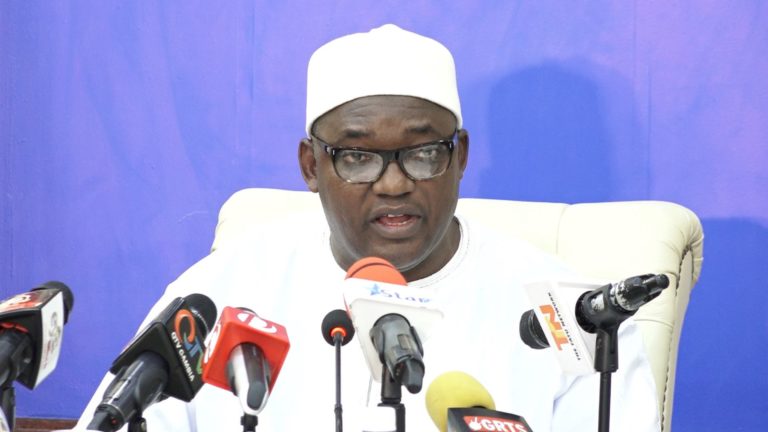

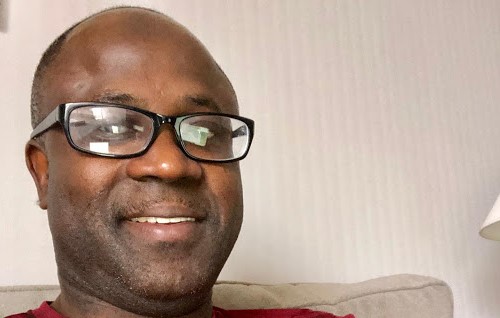
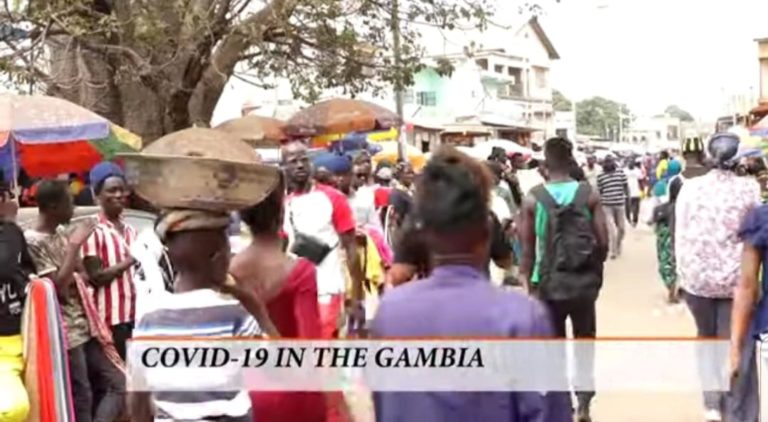
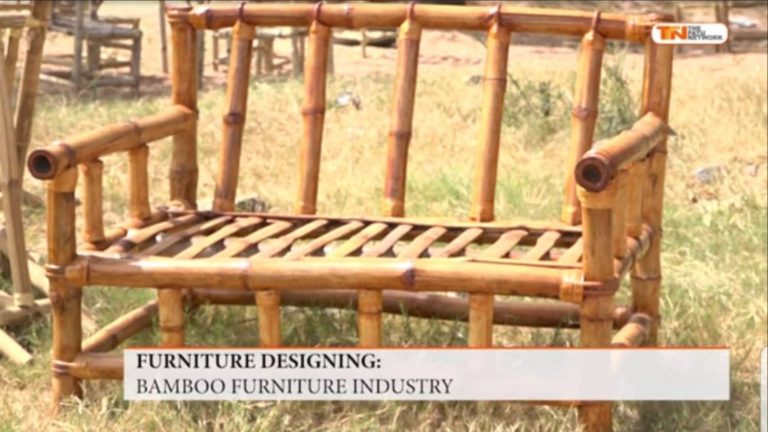
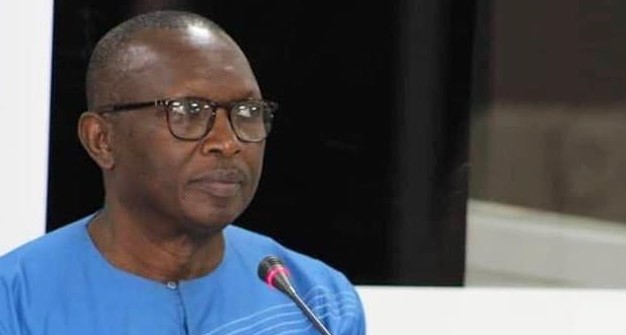
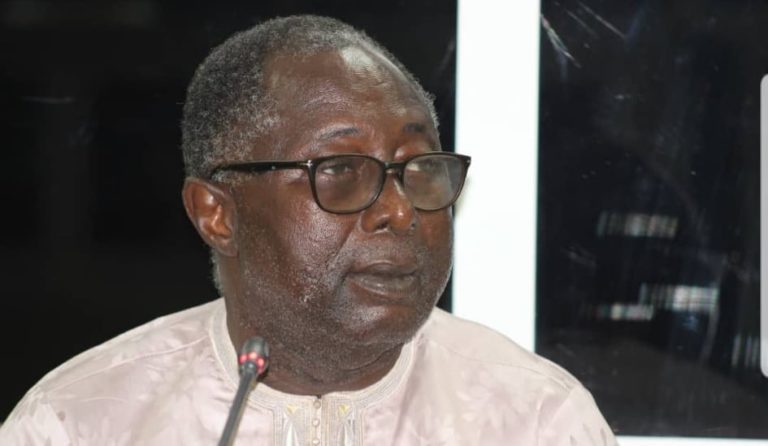
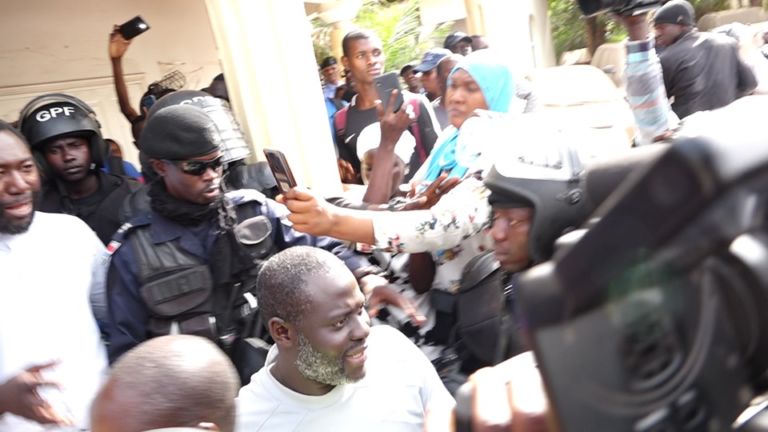
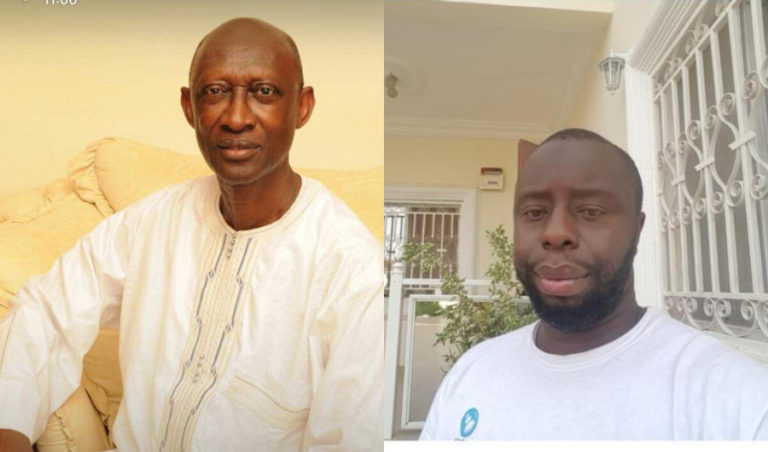
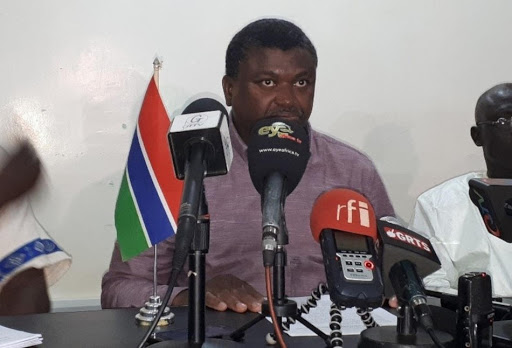
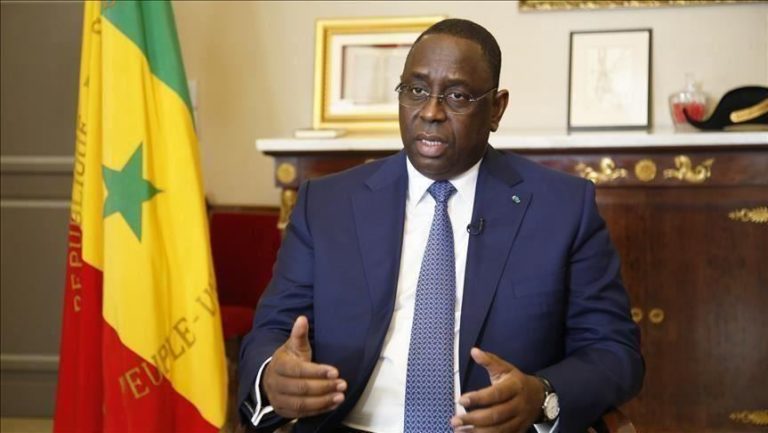
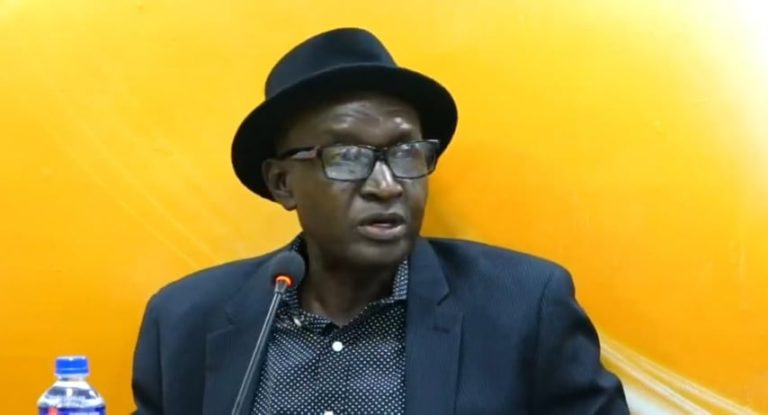

Why the Rearresting of Freed ‘Three Years Jotna’ Leaders is Bad on Every Front
By Pa Louis Sambou, Blogger
One really need not have a vested interest in the subject matter nor even have a skin in the game one way or another for them to hold the view that ‘Three Years Jotna’ (TYJ), was from the word go a cause in futility. This was my view back then and it remains my view today. The President has constitutional authority to remain in office for 5 years; citizens (TYJ in this instance) by the same measure are entitled to exercise their right to freedom of speech and expression including to challenge any President to step down regardless of whether the premise of such a position is valid. My sincere apologies for stating the obvious but, it’s crystal clear that the legality of any exercise of such a right is not dependent on the merit or the State’s approval of the object of such advocacy. However, it must be emphatically stated that the latter’s right does not go as far as empowering them to seek active measures in order to effect the removal of a President nor does the former have a legal authority to thwart any citizen’s right to express an opinion to the effect that they should relinquish power. Not that I’m suggesting that either or both the aforementioned are guilty of overstepping their bounds in the afore-stated literal terms — well I’m not saying so just yet but, only affirming that the above-stated is my understanding of the relevant law being section 25(1) of the Constitution.
In the case of TYJ at least, I doubt anyone could land any legitimate punches on them for want of trying. For what it’s worth, it’s fair to say that the cause merits credit for effort. For a cause so diminished and which now only exists in memory and name, serious questions have got to be asked of the wisdom which informs the State’s decision to rearrest and reinvent the wheel supposedly to ill-advisedly re-initiate a fresh trial having withdrawn their case against those concerned; this overlooks or perhaps ignores all consequential political risks as well as others. To be absolutely clear, I’m by no stretch of any imagination suggesting that such would replicate the political trials of 2016 which arguably primed the atmosphere for the David versus Goliath knockout blow which followed on 2 December 2016 when voters handed former President Jammeh his head. However, in an election year, such is nevertheless a glaringly obvious unmitigated risk especially given recent precedent. For anyone who is of a risk averse disposition, it’s quite extraordinary as to how one (the government of the day in this instance) places oneself at such jeopardy, not only in willingness but also with anticipation as if they have the exclusive franchise on the potential risks.
All aspects of the lamentable event(s) which necessitate this literature are worrying for sure and, under normal circumstances, the logical genesis of any assessment of this nature would begin with some sort of an analysis of the legality of the event(s). With this one though, the truth of the matter is, for a supposedly emerging democracy, it’s so abnormal and unprecedented, it dwarfs even the silliest of tricks and contempts against the norms of the established legal order imaginable under both the quasi – dictatorship and the dictatorship jurisdictions of the former regimes. No disrespect to equally concerned and well-meaning commentators who already did so but, just like I’ll be extremely reluctant to engage a tin-foil hat claim that there are 62 instead of 26 letters in the English alphabet, I’m equally firmly minded to steer well clear of any attempt to abseil down the rabbit hole of seeking to analyse the legality of the State’s grossly irresponsible actions on this occasion. I would however add that there’s good reason to believe that what appears to be an emerging rogue State doesn’t seem to have colonised our Courts (well not yet) in which case we should be heartened by the high likelihood that the dishonourable ploy will, in the long run eventually crumble under the weight of its internal legal contradictions and rightfully so. Therefore, I guess there’ll be ample opportunity for a posthumous examination at some point in the future. Until then, its legality certainly merit no analysis whatsoever. Contempt does not deserve the deference of dignity and, it mustn’t be accorded it.
The actions lamented herein, when considered in isolation of everything else, it’s perfectly understandable how one would quite easily end up heaping all responsibility and culpability squarely on the government. This won’t be an inaccurate conclusion but, it isn’t complete either and I say so because such a determination rides on an assumption which does not take into account the existence of oversight authorities but for whose malfeasance the enabling environment for such abuse to take place would not even exist. With a national human rights watchdog (the NHRC) which for reasons best known to them actively goes out of its way to launder culprits of human rights violation and undermine complaints against human rights violations, what could possibly go wrong? I’m certainly not attempting to draw a link akin to an unhinged suggestion that the dry season comes before the rainy season so therefore 7 months of dry season causes 5 months of rainfall — of course it’ll be daft to imply a causal link between two inter-related occurrences which precede each other solely on grounds of close proximity and inconsequential relationship. In the case of the subject matter under review however, truth be told, the observable realities are such that there’s a reasonable nexus between the malfeasance of the oversight authority (the NHRC in this instance) and the impunity which drives State actors to engage in noncompliant conduct in the full knowledge that accountability will not follow.
Once one begins to abdicate their responsibility and compromise their underpinning values whether wittingly or otherwise, then not far down the line from such unjustifiable omission comes passive complicity. I feel obliged to point out that I make no accusations of complicity but only stating that if such trend continues, it would be reasonable to construe the NHRC and the State to be part of one noncompliant whole in which case any future accusation(s) of NHRC complicity in future human rights violations on the part of the State would be absolutely valid and impliedly so. I cannot see why not. Could you?
So, I suppose the crux of my argument here is that the issue isn’t a one dimensional one and, more importantly, unlike the days when a national human rights watchdog didn’t exist, human rights violations by State actors in today’s Gambia should be viewed in conjunction with the NHRC’s failure to discharge its statutory core mandate, a failure from which impunity is evidently beginning to take hold and thrive to the detriment of society as we’ve seen play out at the Court premises a couple of weeks ago . The irony of the NHRC’s decision to lecture on public health (COVID19) whilst not saying a single word on such monstrosity of a violation I’m sure inspires so much confidence.
For someone who belonged to the ‘constituency’ of Gambians whom were branded the pejorative label “D.S.S” (please don’t ask what that means) by the ex highly provocative allies (now bitter adversaries) of President Barrow from whom emerged TYJ, it’s quite tempting to join others in rubbing my hands in glee at their misery. However, that misses the point entirely because the focus should be the noncompliant conduct (or the violation for a more fitting term) which sets a dreadful precedent under whose wrath anyone of us could fall someday rather than the focus being incorrectly fixated on those to whom such violation is subjected today. My views on TYJ and the deception which conceived the cause is public knowledge; I even had to hold back (and in fact still holding back) on throwing their way an accusation of double standards concerned that such may undeservedly imply the existence of standards where none at all exist. This is how much regard I attribute to the cause. But, however objectionable one finds these as some do, such must not prejudice one’s sense of reason to such extent to allow passion to override it. The actions of the State under review set a very concerning precedent and that has to be a worry regardless of one’s subjective view and opinion of TYJ et al.
Once a government starts to act in the sort of unconventional manner with people with whom politically, it diametrically disagree, then they’re on that long miserable road to totalitarianism. Well, this is the impression such gives, just the wrong sort of seed any incumbent would wish planted in the minds of a post 2016 Gambian electorate especially in an election year. I of course do not speak in astrological terms but, just saying that history does have a way of repeating itself and in light of which fact one would imagine that the State would appropriately reconsider its growing noncompliant conduct and readjust accordingly.